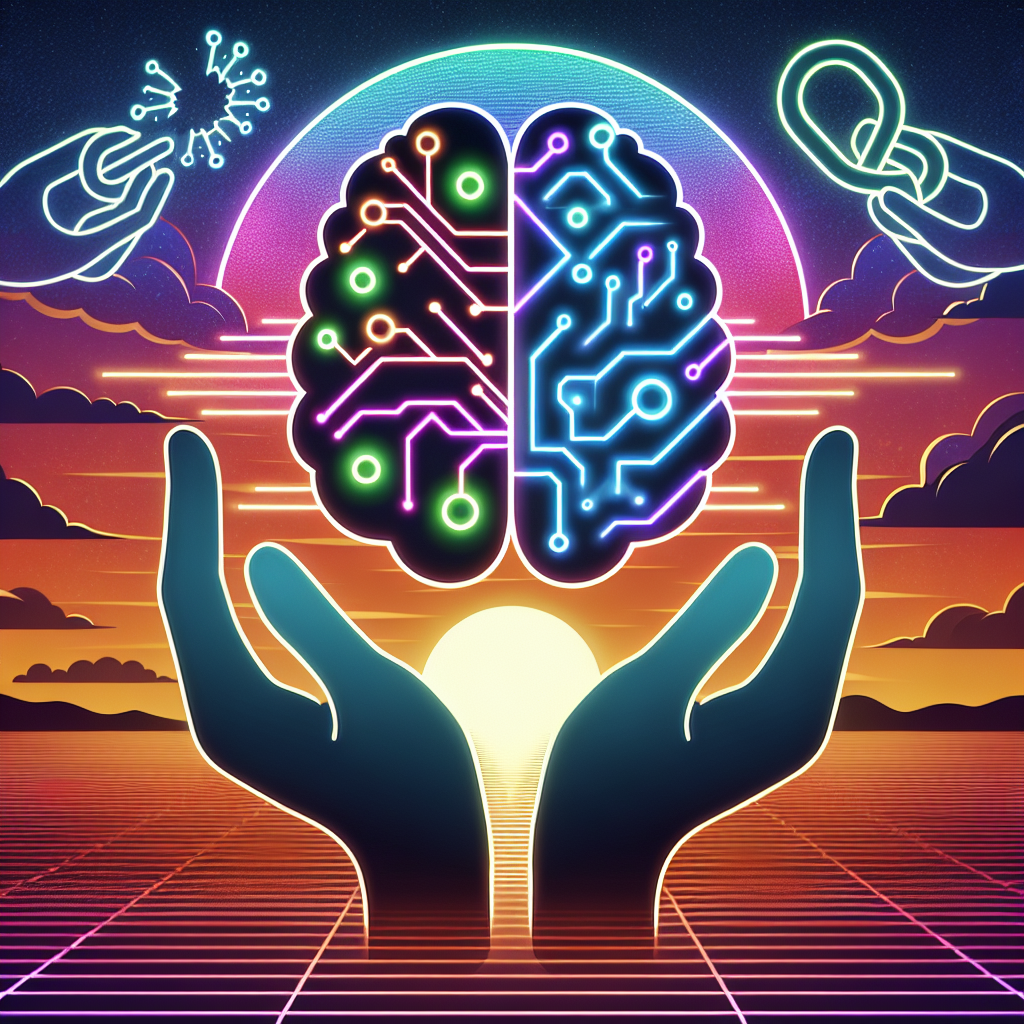Introduction
In recent years, mental health has become a growing concern globally, with the World Health Organization estimating that around 450 million people suffer from mental disorders. The stigma surrounding mental health issues often prevents individuals from seeking help, leading to a lack of access to proper treatment.
However, with the advancements in technology, particularly in artificial intelligence (AI), there is a growing opportunity to address mental health challenges in innovative ways. AI-driven approaches are revolutionizing the way mental health issues are identified, diagnosed, and treated, offering new solutions that have the potential to reach a larger population.
Philanthropy has played a crucial role in supporting AI-driven initiatives that aim to improve mental health outcomes. From funding research projects to supporting the development of AI-powered mental health apps, philanthropic organizations are at the forefront of driving innovation in this space.
In this article, we will explore the various AI-driven approaches being used to address mental health challenges and the role of philanthropy in supporting these initiatives.
AI-driven Approaches to Addressing Mental Health Challenges
1. Early Detection and Diagnosis
One of the key benefits of AI in mental health is its ability to analyze large datasets quickly and accurately. This can be particularly useful in early detection and diagnosis of mental health disorders. Machine learning algorithms can analyze patterns in behavior, speech, and social media usage to identify individuals who may be at risk of developing mental health issues.
For example, researchers at Stanford University have developed a machine learning algorithm that can predict with 90% accuracy whether an individual will be diagnosed with schizophrenia in the next year based on their speech patterns. This early detection can help healthcare providers intervene sooner and provide the necessary support to prevent the onset of severe symptoms.
2. Personalized Treatment Plans
AI can also be used to develop personalized treatment plans for individuals with mental health disorders. By analyzing data on an individual’s symptoms, treatment history, and genetic makeup, AI algorithms can recommend the most effective treatment options for each patient.
For instance, a study published in the journal Nature Medicine found that an AI algorithm was able to predict which antidepressant would be most effective for an individual based on their brain imaging data. This personalized approach can help reduce the trial-and-error process often associated with finding the right medication for mental health disorders.
3. Remote Monitoring and Support
AI-powered mental health apps are also becoming increasingly popular as a means of providing remote monitoring and support to individuals with mental health issues. These apps use chatbots and virtual therapists to provide personalized support to users, offering coping strategies, mindfulness exercises, and emotional support.
For example, Woebot is a chatbot developed by Stanford researchers that uses cognitive-behavioral therapy techniques to help users manage their mental health. Studies have shown that using Woebot can lead to a reduction in symptoms of depression and anxiety.
4. Suicide Prevention
AI can also play a critical role in suicide prevention by analyzing social media posts and other digital data to identify individuals who may be at risk of self-harm. By flagging concerning posts or behaviors, AI algorithms can alert healthcare providers or crisis intervention teams to intervene and provide support to those in need.
For instance, Facebook has implemented AI algorithms that analyze posts and comments for signs of suicidal ideation. If a user’s post is flagged as concerning, they are prompted with resources for help, such as a crisis hotline or support group.
Role of Philanthropy in Supporting AI-driven Mental Health Initiatives
Philanthropic organizations have been instrumental in supporting AI-driven initiatives that aim to improve mental health outcomes. By providing funding and resources, these organizations have enabled researchers and developers to innovate in this space and bring new solutions to the forefront.
One example of philanthropic support for AI-driven mental health initiatives is the Mental Health Innovation Network, which was established by the Bill and Melinda Gates Foundation. The network connects researchers, developers, and policymakers working on AI projects related to mental health and provides funding and resources to support their work.
Additionally, organizations like the Chan Zuckerberg Initiative and the Open Philanthropy Project have also invested in AI-driven mental health initiatives, recognizing the potential of these technologies to revolutionize the field of mental health.
FAQs
1. How accurate are AI algorithms in diagnosing mental health disorders?
AI algorithms have shown promising results in diagnosing mental health disorders, with some studies reporting accuracy rates of over 90%. However, it is important to note that AI should be used as a tool to support healthcare providers in making diagnoses, rather than replacing human judgment entirely.
2. Are AI-powered mental health apps effective in treating mental health disorders?
Studies have shown that AI-powered mental health apps can be effective in treating mental health disorders, particularly when used in conjunction with traditional therapy. These apps can provide users with tools and techniques to manage their symptoms and improve their overall well-being.
3. How can philanthropic organizations support AI-driven mental health initiatives?
Philanthropic organizations can support AI-driven mental health initiatives by providing funding, resources, and expertise to researchers and developers working in this space. By investing in innovative projects, these organizations can help drive progress in the field of mental health and improve outcomes for individuals with mental health disorders.
Conclusion
AI-driven approaches are transforming the field of mental health by offering new solutions for early detection, personalized treatment, remote monitoring, and suicide prevention. Philanthropic organizations play a crucial role in supporting these initiatives, providing funding and resources to drive innovation in this space.
As AI continues to advance, the potential for improving mental health outcomes is vast. By leveraging the power of AI, we can revolutionize the way mental health issues are identified, diagnosed, and treated, ultimately leading to a healthier and happier population.

